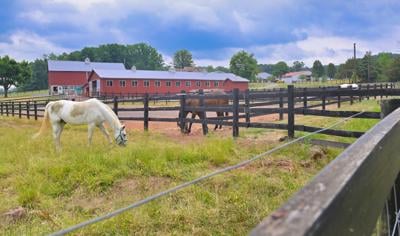Dear Dr. Scribblerlanc:
We returned to Pennsylvania in 2019 after 46 years in Connecticut and are still acclimating to Lancaster County.
I am wondering about others, like ourselves, who are moving from distances into the various retirement communities in this area. Might you do a column on “what everyone needs to know’’ about living in Lancaster County?
SaraJane Munshower
New Holland
Dear SaraJane:
You asked this question so long ago, SaraJane, that you may be surprised by this late answer. The Scribbler has been waiting for a lull. So here we are.
This column is adapted from a talk the Scribbler has presented perhaps a dozen times: “What Makes Lancaster County Unique?’’ This is a small, but essential, part of the whole.
Some of the most fertile farmland in the world distinguishes Lancaster County from other places. The county still boasts 425,000 acres of limestone-rich farmland, a quarter of which has been preserved “forever.’’
Lancaster has more preserved farmland than any other county in the country, thanks to potent programs operated by the county’s Agricultural Preserve Board and the private Lancaster Farmland Trust. But if we did not have farmers to farm, preserving land would not be worth much.
The Amish provide an increasing percentage of our farmers — on preserved and nonpreserved land. The Amish are essential to maintaining the landscape of this county. They also are primary driving forces of this area’s work ethic.
Another natural feature that makes Lancaster County special is the Susquehanna River. In addition to being a popular recreational resource, the Lower Susquehanna (Lancaster and York counties) hosts more power plants — hydroelectric, nuclear and coal-burning — than any other comparable river section on Earth. Good for power production, bad for the environment.
Beyond the natural landscape, Lancaster County is defined by its ethnic diversity. From the beginning, Lancaster welcomed more diverse groups — English, Swiss, Germans, Scots, Scots-Irish, French, Welsh and the Africans whom some of the wealthier members of those other groups enslaved.
In more recent years, thousands of immigrants from Vietnam, Russia and other countries have settled here. Many of these people — more than 5,000 — have been refugees resettled by churches, especially Mennonite churches. Lancaster has resettled 20 times more refugees, per capita, than the United States as a whole.
As diverse as Lancaster is ethnically, it is relatively monolithic politically. Since the creation of the Republican Party in the 1850s, the county has never elected a Democratic member of Congress. Lyndon Johnson is the only Democratic candidate who won Lancaster County’s vote in a presidential election. Outside Lancaster city and its immediate suburbs, Republicans rule almost everywhere.
In recent years, however, a steady growth of independents has cut into the Republican majority (now about 51%) and the Democratic minority (now about 32%).
The county is unusually devout. A newspaper study four decades ago estimated that the county hosted 700 churches and synagogues. That number would be much closer to 1,000 now. Asked what part of the Bible Belt Lancaster County is, the late historian John W.W. Loose replied, “the buckle.’’
Thousands of military veterans live here beside thousands of pacifists and conscientious objectors — an unusual and little-noted juxtaposition.
One more thing. Lancaster’s people are charitable. The Chronicle of Philanthropy ranks Lancaster among the top third of the nation’s counties in charitable giving. A former director of the local United Way explained that “generosity is rooted in pride.’’ Lancaster people are proud of their community.
That’s just a sample of what makes Lancaster Lancaster. Readers might want to add to it.
Jack Brubaker, retired from the LNP staff, writes “The Scribbler” column every Sunday. He welcomes comments and contributions at scribblerlnp@gmail.com.




